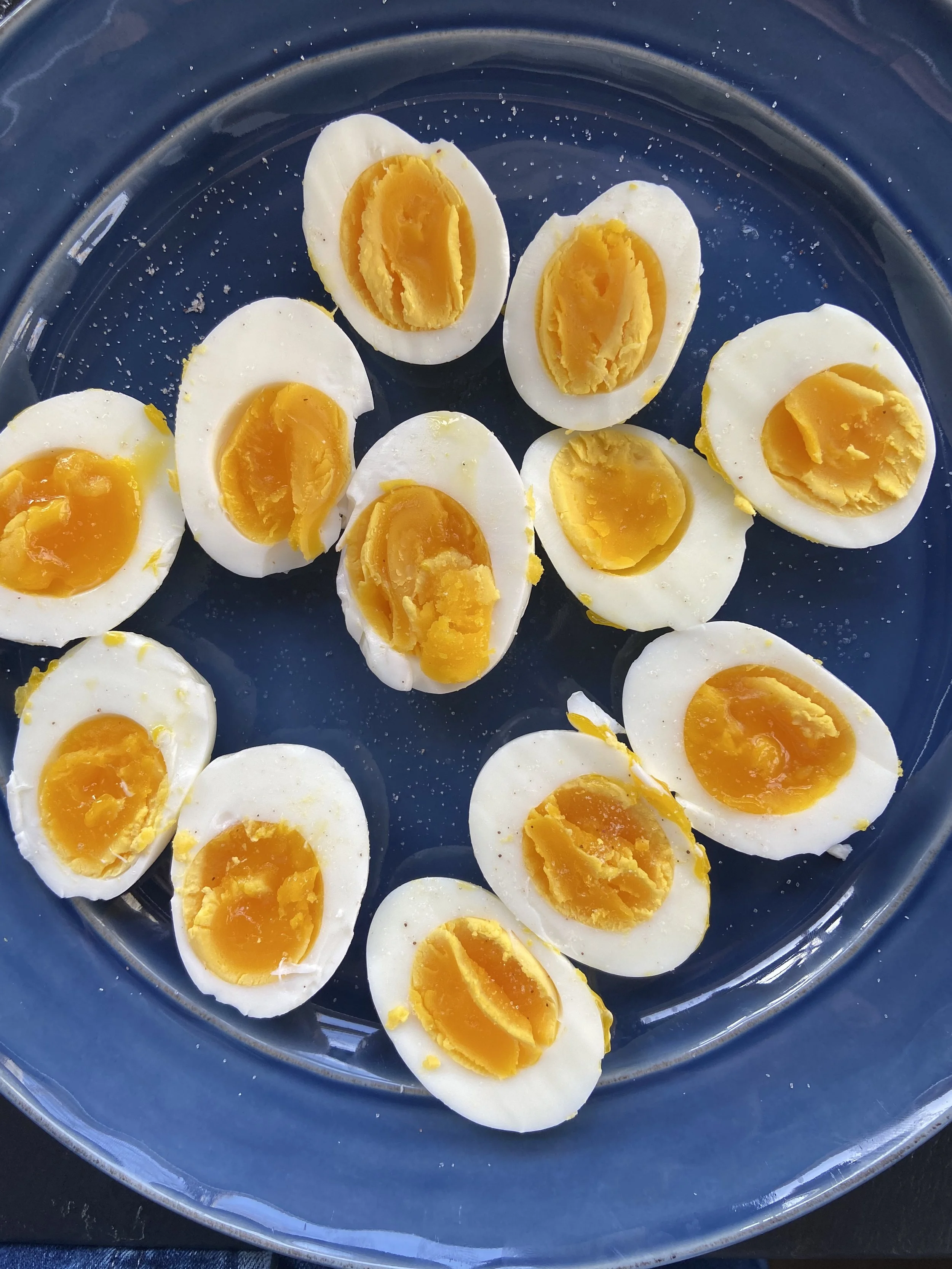Eggs
Eggs. They get a bad rap.
They contain unique antioxidants and powerful brain nutrients that many people are deficient in. We can all use better brain health, and the right eggs cooked the right way can be a great source for it. Use eggs that are pastured (NOTE: cage-free is not the same as pastured) and organic for the best nutrients. And do not overcook your eggs! Overcooking eggs, or cooking eggs at high temperatures, oxidizes the cholesterol in the yolk. This is a concern, as oxidized cholesterol and oxysterols in the blood have been linked to an increased risk of heart disease.
Side by side a local pastured eggs and a store bought "organic" egg
NOW, BACK TO EGGS . . .
Eggs are low in carbohydrates and are an excellent source of protein, with all the essential amino acids in the right ratios. Biological value (a measure of protein quality) is often evaluated by comparing it to that of eggs, which are given the perfect score of 100.
The nutrient content of eggs largely depends on how the hens were fed, so use fresh eggs from chickens who are outside and eating organic grain (pastured and organic, not free range or cage free). Pastured eggs are denser in good nutrients.
Even if a dozen eggs cost $10 per dozen––which they should if they are laid by chickens living outside and fed organic grain––they are still a bargain at 83¢ an egg. There is no other protein source that will give you this much:
6 grams of protein
78 calories,
5 grams of fat
Vitamin A: 8% of the DV (daily value)
Folate: 6% of the DV
Pantothenic acid (vitamin B5): 14% of the DV
Vitamin B12: 23% of the DV
Riboflavin (vitamin B2): 20% of the DV
Phosphorus: 7% of the DV
Selenium: 28% of the DV
Eggs also contain decent amounts of vitamin D (IF THE EGGS ARE PASTURED), vitamin E, vitamin B6, calcium and zinc and are among the best dietary sources of choline, a nutrient that is incredibly important and that most of us are not getting enough.
7 minute eggs - perfect for deviled eggs
Perfectly cooked 7-minute eggs.
How to cook 7-minute eggs: Place eggs in a pot with just enough room for them to lie in a single row in the pot and cover with water. Bring the pot to a simmer, and as soon as it begins to simmer, turn down to low and cook for 7 minutes. Remove from heat, and run under cold water to stop the eggs from further cooking. Knowing your sources and how to cook properly can greatly influence our health….
Poached is best!
And now they are ready for peeling.
And because the holidays are upon us, let’s make eggnog!
A few colorful eggs from my hens




